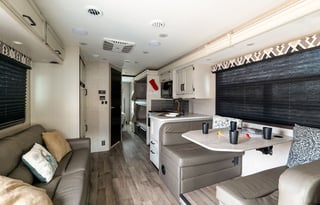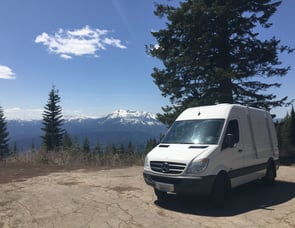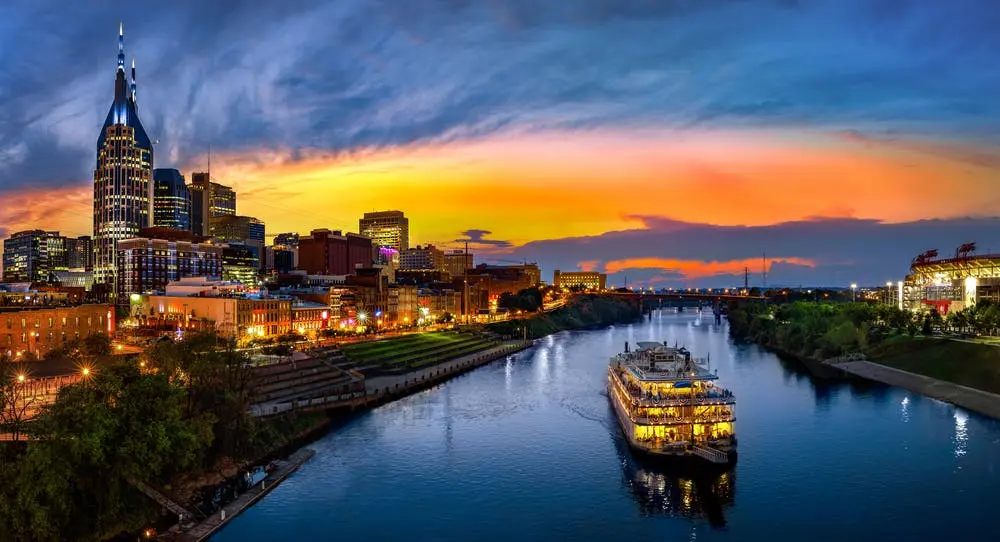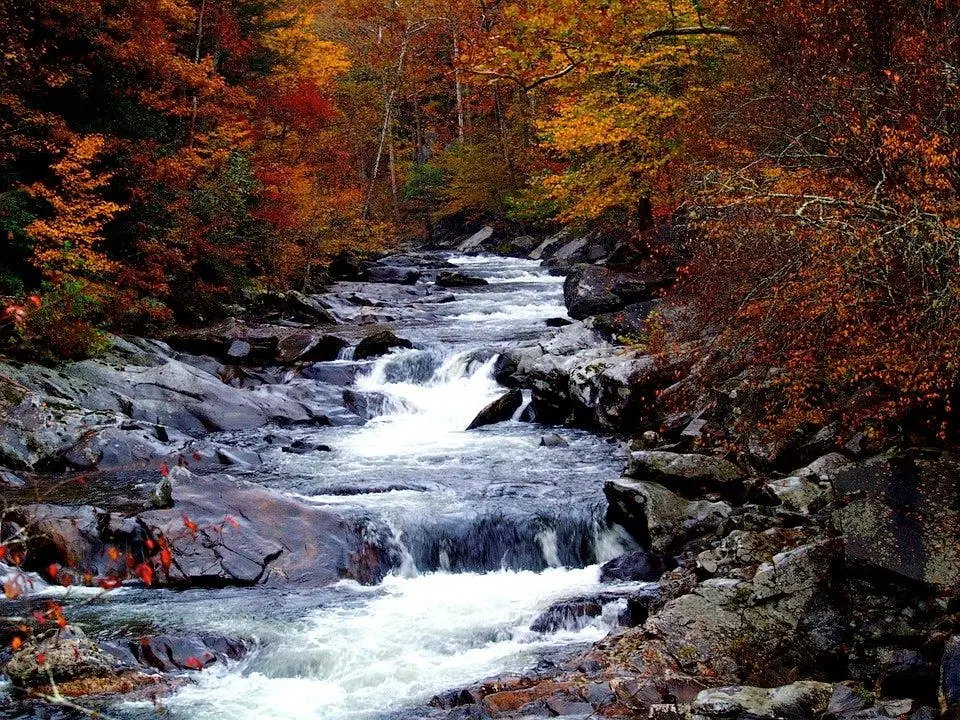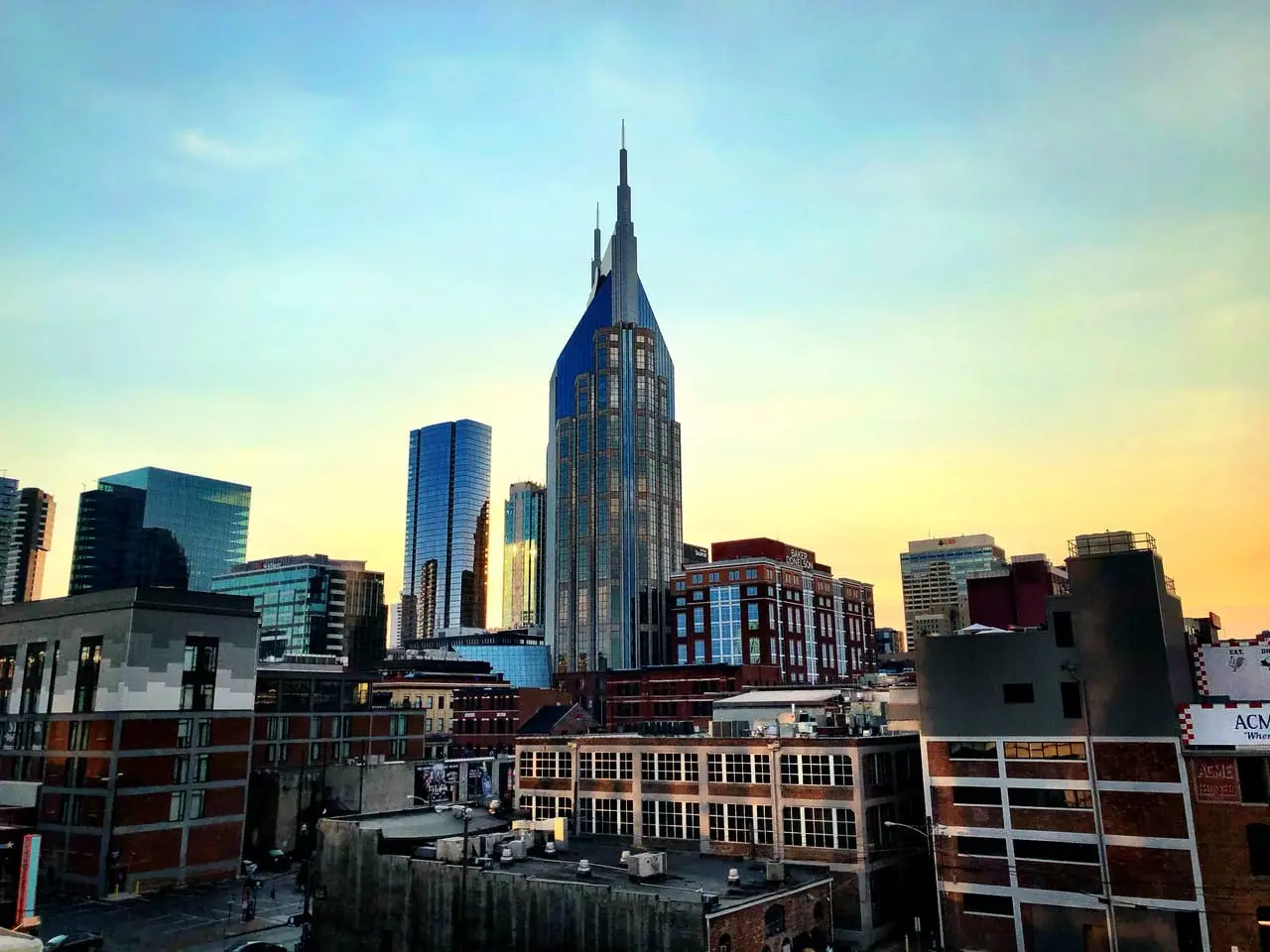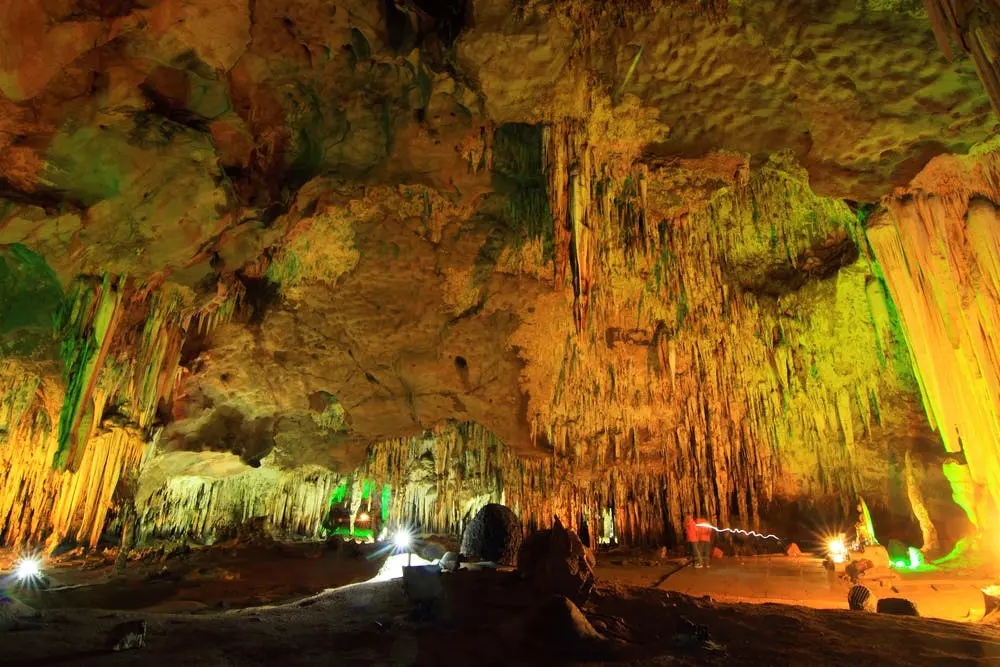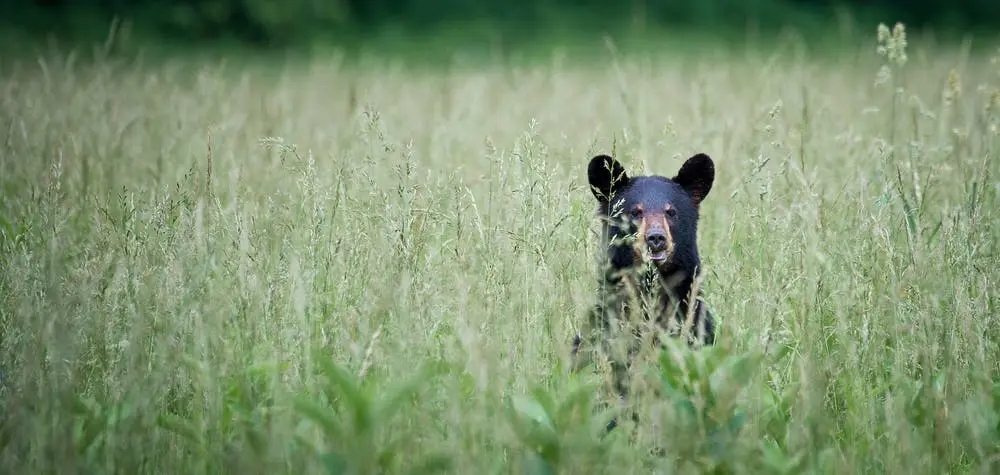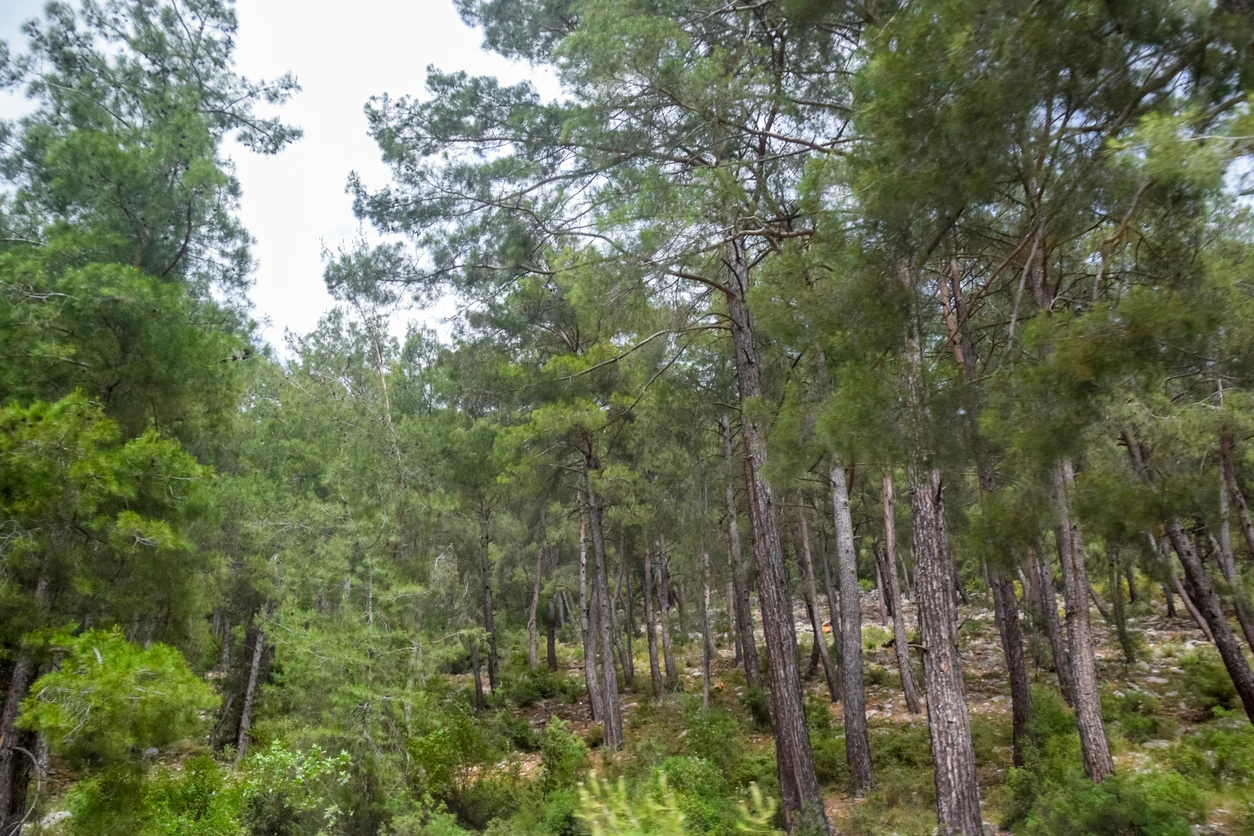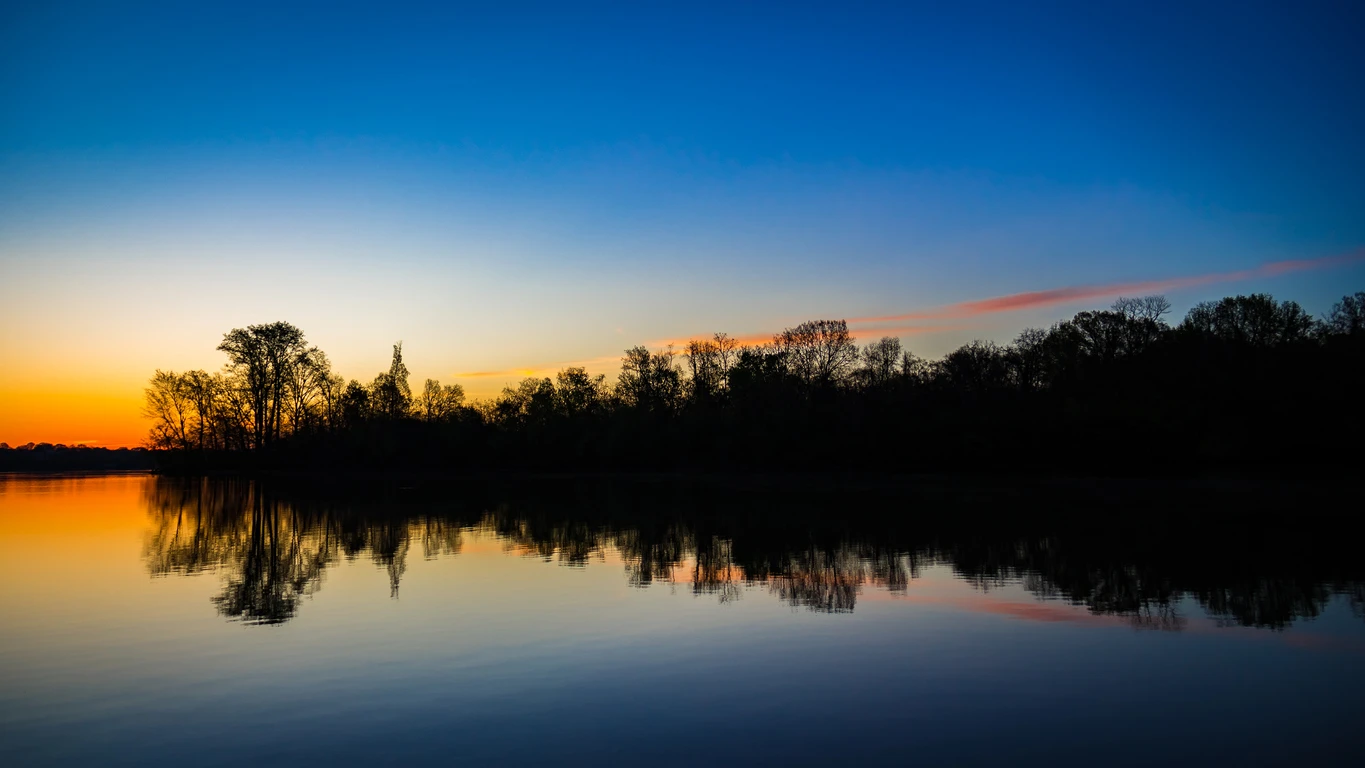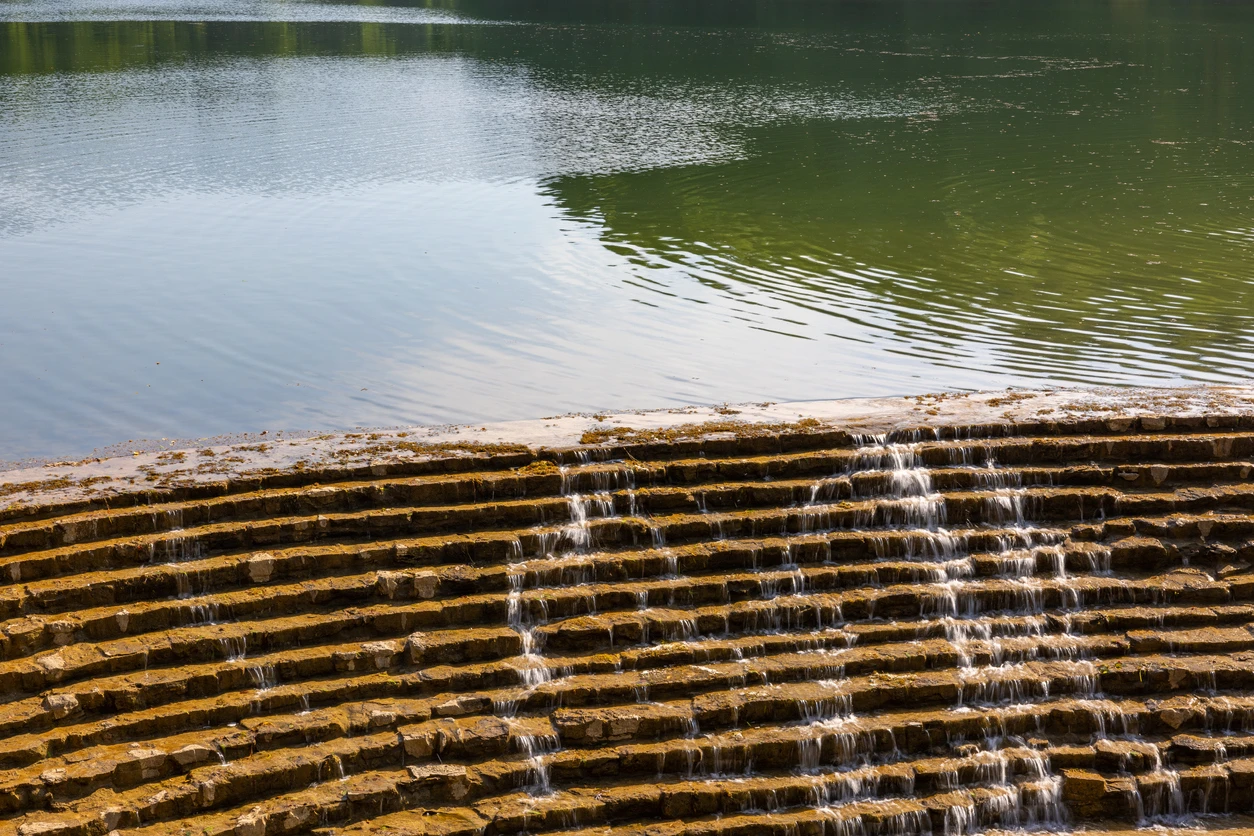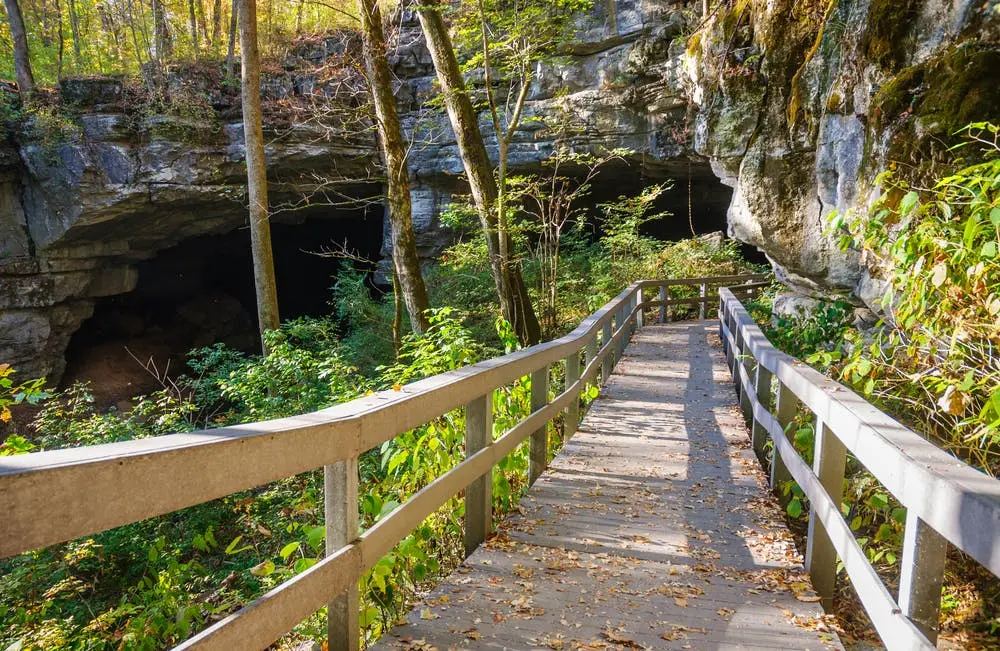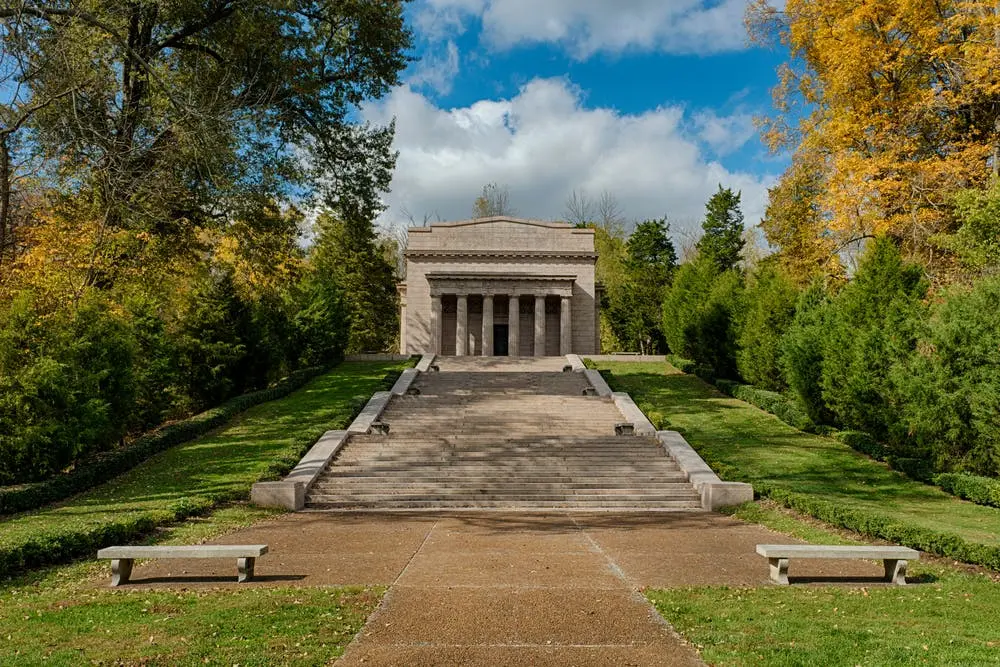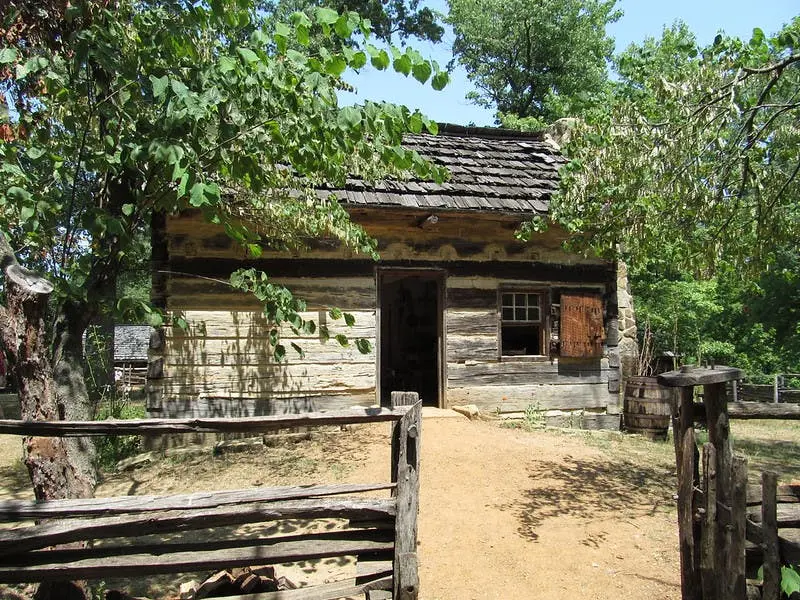When you visit Anderson Road Campground, you can access a free dumping station. Keep in mind that the campground is only open from May to September. The nearby Providence Marketplace has lots of places to shop, dine and catch a movie. If you register as a guest at the KOA - Nashville KOA Campground, 14 miles from Nashville, you can use the dump station for free. If you don't register, you can still use the dump station for $15. About 15 miles from the dump station is the Tennessee State Capitol.
RV Rental Nashville, TN
RV Rentals Near Nashville, TN
Top Motorhome RV Rentals
Budget Friendly RV Rentals in Nashville, TN
Top Travel Trailer RV Rentals
Longer Term RV Rentals in Nashville, TN



Nashville, the state capital of Tennessee, had a population of 689,447 as of the latest census, making it the fourth-most populous city in the Southeastern U.S. It is located on the Cumberland River, and it was named after Francis Nash, a general from the Continental Army during the Revolutionary War. Nashville grew quickly after its founding in 1779, thanks to its strategic location.
In the 19th century, Nashville became a major hub for railroad traffic. Then it seceded with the Confederacy during the Civil War, and it was the first state capital to be recaptured in 1862. The city continued developing after World War II and experienced rapid suburbanization.
The rapidly expanding suburban population drained the city's tax base, triggering financial difficulties. Nashville annexed 42 square miles of suburban jurisdictions to counter this problem after a referendum in 1958 failed. During the 1960s, racial tensions were high because of segregation. However, Congress passed civil rights legislation in 1964 and 1965 to address the issue.
Since the 1970s, the city has undergone tremendous growth, and there was an economic boom in the 1990s. During this time, the city's mayor, Phil Bredesen, facilitated the construction of several notable landmarks, including the Country Music Hall of Fame and Museum. Bredesen also fostered the erection of the downtown Nashville Public Library, the Bridgestone Arena, and the Nissan Stadium. Today, visitors flock to the city to see the Grand Ole Opry House and the Opry Mills Mall.
Campgrounds Near Nashville, Tennessee
Clarksville RV Resort is 50 minutes northwest of Nashville, right off I-24, Exit 1. It is close to Mammoth Caves, Fort Campbell, and the Land Between the Lakes Recreation Area. Overnight guests can rely on the campground's Wi-Fi, ice, and firewood, and the RV sites have full hookups for electricity, water and sewer lines.
Anderson Road Campground is a relatively basic facility, but it offers immediate access to a lake. It has 30- and 50-amp hookups, and there are a total of 37 sites. It is about a 20-minute drive from downtown Nashville, so you do not have to worry about bustling city noise at night.
Fall Hollow Campground and Bed & Breakfast is in Hohenwald, approximately an hour and 20 minutes southwest of Nashville, and the owner is a fantastic chef. There is an all-you-can-eat buffet served every Saturday and Sunday in the morning. Daily rates start at $35, and there are 35 sites overall. Each of them has 30- and 50-amp hookups.
State Parks Near Nashville, Tennessee
Cedars of Lebanon State Park is 50 minutes southeast of Nashville via I-40. It is hidden between Lebanon and Watertown, and its name is derived from its signature eastern red cedar trees. Early American settlers were reminded of the Biblical Lebanese cedar forests when they arrived in the area. Today, traveling families can enjoy hiking, biking, and horseback riding in the park. Throughout the year, temperatures vary widely, reaching the upper 90s in the summer. Six trails wind through the park, and a disc golf course is on-site.
Fifty-five minutes northeast of Nashville, via TN-386 and I-65, is Bledsoe Creek State Park. It encircles 169 acres of Old Hickory Reservoir, one of Nashville's water sources. You can step up to the bluff overlooking the confluence of Bledsoe Creek and Cumberland River in the park. After Old Hickory Dam was constructed in 1954, it led to the creation of an escarpment and an embayment. Visitors can enjoy hiking, canoeing, and kayaking at this park without having to pay an entrance fee. Fishing and angling are also popular in the park.
Montgomery Bell State Park is 40 minutes southwest of Nashville near the town of Dickson. This area was once the beating heart of Tennessee's legendary iron industry. The park surrounds 3,700 acres of pristine countryside and includes a well-appointed campground with 94 sites and space to accommodate 60-foot RVs. The park office organizes numerous events, such as fun runs, night sky viewings, and golf cart safaris. Hiking, biking, and birding are some of the park's most popular activities.
National Sites Near Nashville, Tennessee
The Russell Cave National Monument in Alabama, an hour and 55 minutes southeast of Nashville, is a major historic location. Visiting travelers can learn the story of prehistoric people and their culture. From 10,000 B.C.E. to 1,650 C.E., the cave's large entrance served as a site for Native Americans to gather. Ancient people used their surroundings for hunting wild game, finding raw materials, and harvesting produce. While at the monument, you can tour the Russel Cave Museum at the visitor center and hike the 1.2-mile Russell Cave Nature Trail.
Abraham Lincoln Birthplace National Historical Park is in Kentucky, two hours and 10 minutes northeast of Nashville. The famed president was born in Sinking Spring, Kentucky on February 12, 1809. Thomas and Nancy Lincoln gave birth to their baby boy Abraham in their log cabin on that day. They would occupy this site until he turned seven years old. At the park, you can view the first Lincoln memorial and the Symbolic Birth Cabin of Abraham Lincoln. You can also view Sinking Spring, the water source of the Lincoln family.
The Lincoln Boyhood National Memorial is in Indiana, two hours and 40 minutes north of Nashville. When he was seven, Abraham Lincoln moved from his birthplace and resettled here. He would spend his boyhood on the Lincoln Living Historical Farm before becoming the 16th president of the United States. Interpreters still dress in period costumes and conduct daily farm activities. In the visitor center, you can view a 10-minute film about Lincoln's childhood as well as explore the Lincoln in Indiana Museum to learn about the 16th president's life from ages seven to 21.
National Forests Near Nashville, Tennessee
The Land Between the Lakes National Recreation Area is an hour and a half northwest of Nashville. It comprises 171,280 acres of land sandwiched between two dams on two rivers in Western Kentucky and Tennessee. The Tennessee River comes within a mile of the Cumberland River here, and this park is home to the United States' largest land-locked peninsula. President John F. Kennedy named the site a National Recreation Area in 1961. The park contains 300 miles of shoreline and lake access, making it an ideal place to picnic, fish, view wildlife, camp, and hike.
William B. Bankhead National Forest is in Alabama, two hours and 45 minutes south of Nashville. It comprises 181,230 acres of northwestern Alabama, and it is known as the "land of a thousand waterfalls." The forest is home to Alabama's only Wild and Scenic River, the Sipsey Fork. Besides the Sipsey, there are abundant waterfalls along the park's trails. Within the forest, there are several recreation areas, trails, campgrounds, a shooting range, and a hunter's camp.
Hoosier National Forest is in Indiana, three and a half hours north of Nashville. This 202,814-acre expanse is a testimony to the U.S. Forest Service's stewardship. This forest includes streams, lakes, and reservoirs filled with fish. Furthermore, hikers, bikers, and horseback riders share the 265 miles of trails snaking their way through the hills. There are also multiple ways to camp as you can rent a cabin, stay at one of the developed campgrounds or do some backcountry camping without amenities.
Pet Friendly RV Rentals in Nashville
When you are looking for a place to travel with your pets, Nashville, TN is an excellent destination. There are a number of different RVs and trailers that are well-suited for pets, and they can be found under RVshare Nashville rentals. There is even a filter that allows you to search for an RV that allows pets - simply check the box that says "Allows Pets" and see the RVs that are available.
There are quite a few pet-friendly places that you can enjoy in Nashville, TN. In fact, if you are coming to the town to experience music, there are even cafes and other locations that will allow you to bring your pet along as well. There are also nearby hiking trails and walking paths where you can exercise your pet. If you do bring your furry friend along, be sure to pack their bedding, crate, toys, or other familiar items that will help them feel at home on the road.
Explore Nashville, TN
The Ganier Ridge Trail at Radnor Lake, 11 miles from Nashville, provides exquisite views of the lake and surrounding forest. Hikers can spot wildlife such as deer and turtles along the trail. Radnor Lake retains a natural ecosystem amid urban development due to its protected status. RV travelers will appreciate nearby amenities such as parking, restrooms and picnic areas.
Beaman Park Loop, about 12 miles from Nashville, offers hiking trails through dense forests and rolling hills. It's the perfect place to birdwatch, take nature walks and go wildflower spotting. The Country Music Hall of Fame and Museum in downtown Nashville features the ACM Gallery, where you can record your own song in a replica recording studio. Unique to the museum is its extensive collection of instruments and costumes from country music legends. The Grand Ole Opry, 11 miles from the city, is another legendary music venue, showcasing live performances by country music artists.
The Nashville Zoo, eight miles away, is enjoyable and informative for people of all ages. The zoo's endangered species protection initiatives are very unique. RVers will love the zoo's extensive parking, toilets, eateries and gift shops. The John Seigenthaler Pedestrian Bridge, a half mile from the city center, delivers stunning views of the Nashville skyline and Cumberland River. You can walk or bike across the bridge to take in the sights of downtown Nashville.
The Parthenon is a full-scale replica of the original Parthenon in Athens, Greece, located in Nashville's Centennial Park, 2.5 miles away. Former U.S. President Andrew Jackson lived at the historic mansion known as Andrew Jackson's Hermitage. The home and grounds, which are 16 miles from Nashville, are open to the public for tours.
Road Trips Starting from Nashville, TN
Best National Parks Near Nashville, TN
Although Nashville isn't exactly in the middle of any national parks, the ones that are closer are well worth the trip. Famous for its immense network of subterranean caverns, rivers and unusual rock formations, Mammoth Cave is a must-visit attraction for anybody interested in caving. The park is approximately 94 miles from Nashville, but it offers lots of RV-friendly campgrounds and outdoor excursions. Trails such as the Cedar Sink Trail and the Green River Bluffs Trail are among the more than 70 miles of hiking paths found inside the park. Rare plant species, such as green violets and Kentucky glade cress, are on display amid the park's rich flora.
Over 800 miles of hiking trails are available to visitors at the Great Smoky Mountains National Park, roughly 200 miles from Nashville. Some of the most well-known routes include the Appalachian Trail and the Alum Cave Trail that leads to Mount LeConte. Clingmans Dome, the Smokies' tallest mountain, and Cades Cove, a valley teeming with history and animals, are two of the park's most recognizable features. The area's outstanding biodiversity and breathtaking natural scenery earned the park the unique distinction of being both a UNESCO World Heritage Site and an International Biosphere Reserve. There are about 1,500 species of flowering plants in the park.
Popular State Parks Near Nashville, TN
Cedars of Lebanon State Park is approximately 33 miles from Nashville. You can bring your own horse or rent one locally to explore the winding equestrian trails at the park. If you like stargazing, consider staying the night at the park's campground, which offers tent and RV sites with modern amenities. Make sure to bring your binoculars and go birdwatching, as the park is home to over 100 bird species, including the rare golden eagle.
Also about 35 miles from Nashville is Bledsoe Creek State Park. Visitors with travel trailers and toy haulers love bringing their boats here. You can launch into Old Hickory Lake and enjoy a day of boating, water skiing and fishing for bass. If you're a morning person, start your day with a round of disc golf on forested fairways. In the evening, take a stroll along one of the park's nature trails — like the Shoreline Trail or the Wetland Trail — to see birds and other animals up close.
If you go 35 miles southwest of Nashville, you can visit Montgomery Bell State Park. When you come during warm weather, you can take a refreshing dip in the park's outdoor swimming pool. Lake Acorn offers plenty of fishing opportunities for bass, bluegill and catfish. With over 20 miles of hiking trails, including the Creech Hollow Trail and Lake Acorn Loop Trail, you'll enjoy lots of wildlife viewing and birdwatching at this park.
Must-see Monuments and Landmarks Near Nashville, TN
Explore the prehistoric significance of Russell Cave 120 miles southeast of Nashville, where archaeological excavations reveal evidence of human habitation dating back over 10,000 years. Nearby RV-friendly campgrounds include Cathedral Caverns State Park Campground and Gorham's Bluff Campground.
Discover the humble beginnings of the 16th President of the United States at Abraham Lincoln Birthplace National Historical Park, 130 miles northeast of Nashville. You can visit the preserved log cabin of Lincoln's birthplace and learn about his early life and legacy. RV-friendly campgrounds close by include My Old Kentucky Home State Park Campground and Green River Lake State Park Campground.
Step back in time at the Lincoln Boyhood National Memorial, 200 miles north of Nashville, where Abraham Lincoln spent his formative years. Take a tour of the reconstructed farmstead where Lincoln lived as a boy and explore the museum exhibits related to his life. The nearby Lincoln State Park Campground and Lake Rudolph Campground & RV Resort both offer RV hookups.
RVshare’s Top Picks for Nearby RV Parks & Campgrounds
RJourney Clarksville RV Resort, 100 miles from Nashville, provides full hook-up sites for RVs, Wi-Fi and cable TV. The campground's convenient location near attractions in Clarksville, TN, like Dunbar Cave State Park and Fort Defiance Civil War Park, makes it a popular site for RV travelers. Unique amenities include a swimming pool, a dog park and on-site laundry facilities.
The Anderson Road Campground, only 15 miles from Nashville, features a peaceful countryside setting. This campground offers spacious RV sites with electric and water hook-ups. Nearby attractions include Long Hunter State Park and Percy Priest Lake.
Nestled in the scenic hills of Hohenwald, TN is Fall Hollow RV Park, 70 miles from Nashville. You'll find plenty of RV sites with electric and water hookups at this campground, along with cozy cabins and a charming bed and breakfast. Some of the nearby attractions include Fall Hollow Waterfall and Natchez Trace Parkway.
RV Rentals Near Nashville, TN
You can easily rent RVs of all kinds around Nashville with RVshare. Imagine exploring areas near the city, like Bledsoe Creek State Park, in a spacious Class A motorhome with all your must-have amenities. You can enjoy a leisurely dinner over a campfire after spending the day boating on Old Hickory Lake. If you don't want to stay overnight at the park, you can always go approximately 35 miles down the road to Dad’s Bluegrass Campground. If you want something smaller to travel in, you may want to consider a Class B campervan. Located just outside Nashville, Percy Priest Lake offers a range of recreational activities perfect for campervan travelers. The lake even features campgrounds with RV-friendly sites, providing a convenient base for exploring the area.
A Class C motorhome offers ample sleeping space, with multiple beds, including an over-the-cab bunk, convertible dinette and rear bedroom. They are ideal for larger parties and exploring areas like the Natchez Trace Parkway. An RV allows you to travel the parkway at your own speed without having to worry about lodging. If you want to bring additional transportation, a travel trailer is a great option to consider. You can unhook the trailer from your SUV or truck, leaving it at a campground while you explore all that Nashville has to offer. Even though travel trailers work better for stationary camping and shorter trips, they offer greater flexibility in terms of customization and budget-friendly travel.
Frequently Asked Questions About Renting an RV Near Nashville, TN
How much does it cost to rent an RV in Nashville, TN by trip duration?When renting an RV in Nashville, you can expect to pay $250 a night for motorhomes and $110 a night for travel trailers.
What does RVshare Protection cover with my Nashville, TN RV rental?RVshare's protection plan standard package covers Up to $300,000 in comprehensive and collision coverage based on the value of the RV. It also includes free 24/7 roadside assistance and free towing and tire service. For more information on RVshare insurance, click here.
What is included in my Nashville, TN RV rental?Check your RV listing and ask the owner about what is included with your RV rental. Every rental may not have the same inclusions.
Can I have my Nashville, TN RV rental delivered to a specified location?Many owners on RVshare.com offer delivery. They will drop the RV off and some will even set it up for you at the campsite. Check the listing or ask the owner to see if this service will be offered and its associated cost.
